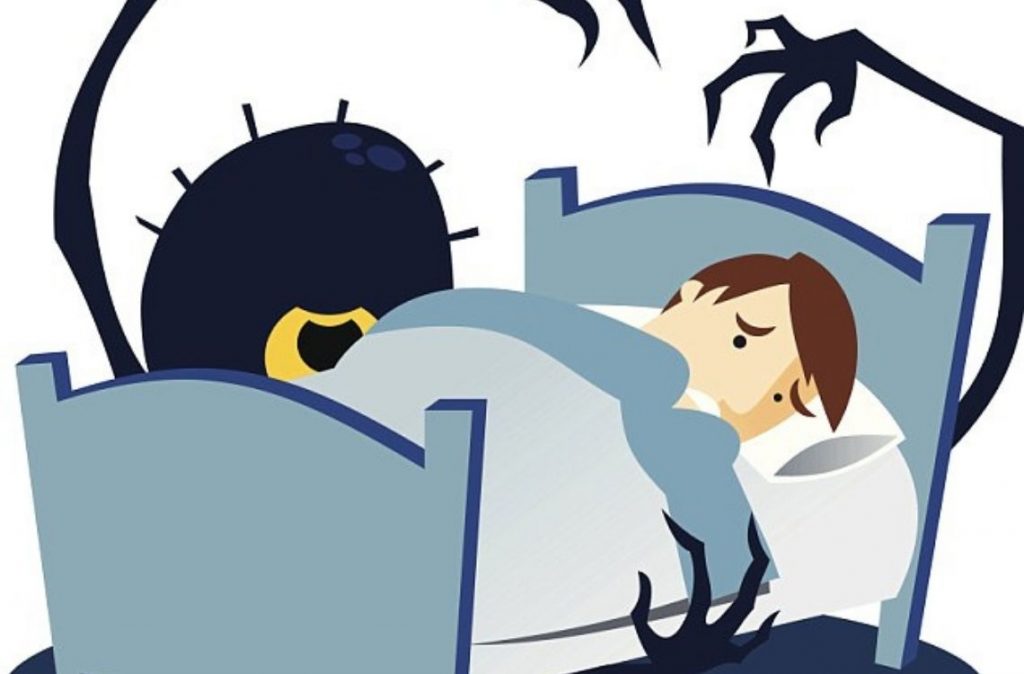We all had nightmares where it would wake us up in the middle of the night. It can be either two which it is going to be scary monsters and ghosts or terrifying events such as all of our teeth falling out from our mouth, yet there is nothing we can do about it because it is out of our control!
I still remember how frequently I had nightmares when I was still a child. Even now, I still get it after watching some horror movies. I am not going to lie, as a child or as an adult, a bad dream is horrifying! Can you imagine how our kids would feel to experience one?
What Exactly Is a Nightmare In Children?
Children’s nightmares are terrifying or disturbing visions that normally wake them up.
During the last third of the night, when rapid eye movement (REM) is active, these dreams typically occur.
Fear or anxiety and other feelings such as anger, disappointment, humiliation or disgust may be included in them.
How Do Nightmares Happen?
Fun Fact: Nobody really knows what triggers nightmares specifically!
Nightmares happen when your children are experiencing stress, restlessness or traumas. Bad dreams or disturbing hallucinations can also be triggered by certain drugs.
Reading creepy books or watching horror movies or TV shows just before going to bed can cause nightmares for some children especially those with a strong imagination.
Parents, try not to watch scary films in front of your kids as they would involuntarily imagine all of the scary parts whenever they try to close their eyes to sleep.
Some nightmares might occur that can depict familiar or recognizable faces or places but with scary plots and twists.
At What Age Can My Child Experience Nightmares?
Most children are likely to have bad dreams at least once. Nightmares can affect anyone at any age, but they typically start between the ages of 3 and 6 and decrease after 10 years of age.
The types of nightmares vary by process of development. Younger children are likely to have dreams of being disowned from their caregivers or seeing a disturbing creature while older kids are likely to have frightening movie-related dreams, or potentially stressful events, such as the start of a new school term.
How Can I Prevent My Child From Having Nightmares?
Measures to reduce the risk of nightmares for your child include:
-
Console your child and assure them.
Hug your children, pat their back, and tell them everything is fine. Tell them that you are there if they need you. Stay right next to your child and cuddle them for a while until they go back to sleep.
But REMEMBER, do not excessively pamper your child when they have bad dreams. Try to encourage them to sleep in their own room and you can try to leave the door open a little bit just so they know that you are nearby.
-
Keep the routine for bedtime pleasant and peaceful
Avoid letting your sons and daughters from watching scary films or read terrifying books before bedtime because it might upset them or make them feel uncomfortable.
Buy a night lamp for them instead of turning on the bright lights to accompany them. Tell them to have a warm bath and put some sleeping essential oil on their legs and behind their ears so that they can sleep in no time.
-
Listen to your kid’s bad dreams
If your child talks to you about their nightmare, be compassionate. Do not ignore or belittle them. Listen to their fears.
The emotional impact can be reduced by talking about the bad dream peacefully together. The dreams could be about school, family conflicts, or other matters that concern them.
Work to recognise, and speak about stressful events in the life of your child. But if your child has forgotten about their nightmares, it is best for you to not ask them about it.
Other than that, consider bringing your kids to the doctor if their nightmares are growing constant, severe and becoming abnormal in psychological aspects that can cause anxiety.
Your kid’s fear of their nightmares may disrupt their daily activities even in the daytime. Be a loving parent and be there for your kids even if it’s only in their dream!
